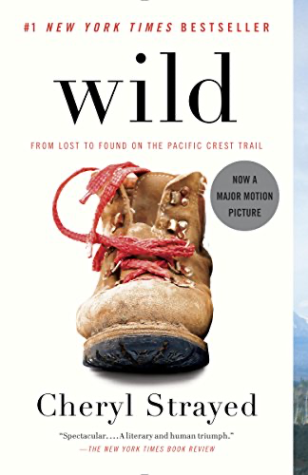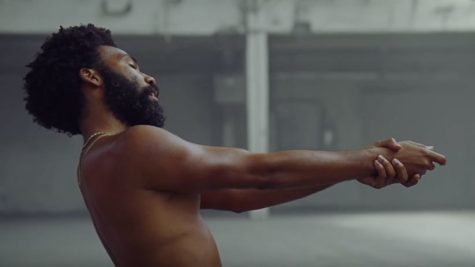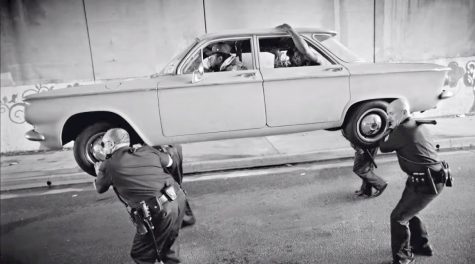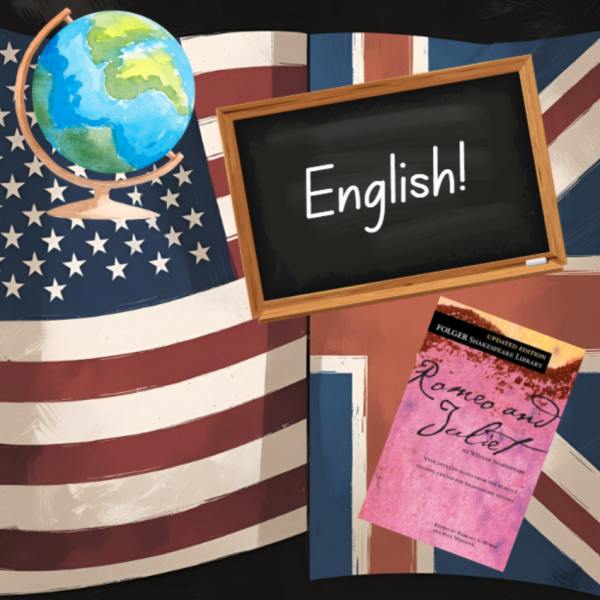To ban or not to ban: What belongs in Radnor’s classrooms
February 8, 2022

Correction: This is a revised version of the article first posted on 02/08/22.
Before the issue of book banning and censorship entered the spotlight in national news, a group of Radnor High School parents fought to remove curriculum material from the ninth-grade interdisciplinary course, “The American Experiment.” These parents had concerns about explicit content, including descriptions of sexual activity and drug use, that were found in the assigned summer reading book, Wild, by Cheryl Strayed. A year after these parents voiced their complaints, in a separate incident, a different group of parents approached the RTSD school board. This group accused the ninth-grade integrated teachers, Mr. Payne and Mr. Dunbar, of teaching Critical Race Theory, fostering racism towards white people, and using inappropriate books and videos in their class.

The debate about Wild started in the summer of 2020, when a group of parents circulated a petition to remove the book from the course’s curriculum. Wild, a memoir, describes Cheryl Strayed’s experience solo hiking the Pacific Crest Trail after the death of her mother and her struggle with drug abuse. Strayed also talks openly about a time when she used sex as a coping mechanism to deal with her emotions. One parent involved in the petition, who wishes to remain anonymous, explained in an interview, “The primary concern of the group was the assignment of [Wild], which includes graphic sexual material, over the summer to incoming ninth graders aged between 13-15.”
After gathering enough signatures, the parents brought the petition directly to the administration, without first notifying the Integrated teachers. The anonymous parent involved in the petition emphasized that the group had specific reasons for taking the issue directly to the administration instead of first talking to Mr. Payne and Mr. Dunbar: “The school year had ended by the time the group came together; some parents were concerned that their views could affect their students’ continuing relationship with the teachers; and some parents felt that the issue was administrative: determining the appropriate content for assigned reading at the incoming freshman level. ” At the end of the 2020-2021 school year, Mrs. Kevgas, the principal of RHS, and Mr. Bechtold, the Director of Secondary Teaching and Learning, organized a meeting with Mr. Dunbar and Mr. Payne to have a discussion about Wild. By the end of this meeting, the administrators came to the conclusion that Wild should not be a part of the ninth grade course; however, they did not take issue with the book being taught at a higher level, such as in a senior class. Mr. Payne said he felt frustrated that he did not have the chance to meet with the parents himself, and shared that he would have liked to have more time with the administration to deliberate. Mrs. Kevgas explained that she listened to everything Mr. Payne said at their meeting, but she determined that the administration had to make a “global” decision, meaning in the best interest of all students.
When parents have questions about the curriculum for a specific class, their first step is usually to meet directly with the teacher. Mrs. Kevgas reiterated, “When a parent expresses a concern, I always encourage them to reach out to the teacher to have a conversation. It’s extremely important for parents and teachers to be partners in our students’ education.” In addition, Mrs. Kevgas explained that she will meet with parents if they have additional concerns after talking with the teachers; however, in the case of Wild the parent-teacher meeting failed to happen. Dr. Rachel Skrlac Lo, an assistant professor of education at Villanova University and a parent of a student who took the American Experiment, explained, “All teachers receive criticism of their teaching, and it’s hard to receive because most teachers do this because we believe we are nurturing [students]. How we get criticism can also affect how we respond to it.” She was not part of the group of parents who signed the petition, but she had notified Mr. Payne and Mr. Dunbar about her reservations about the book a few years earlier. Hearing the complaints about Wild for the first time from the administration rather than from the parents made Mr. Payne feel as though an important part of the process had been neglected. Mr. Payne shared that he understands the administration had the power to make the final decision, but he wishes he had had more opportunities to share his perspective in addition to his one meeting with district decision makers. Mr. Payne further commented, “I’m a stakeholder in this. I’m the person on the front lines in the classroom. My point of view should matter.”
Dr. Skrlac Lo felt that assigning the book as a summer reading assignment was a mistake. Skrlac Lo explained, “Teachers have a responsibility to think about the psychological effects of literature, recognizing that some texts may cause unexpected responses in readers. By providing a provocative text before even meeting the students, the teachers are unable to gauge responses and facilitate students’ processing of the ideas.” One young woman who took the class a few years ago shared, “I think that Wild glorified a very immature and reckless decision by [Cheryl Strayed]. While the book was somewhat inspiring, Cheryl Strayed put herself in situations that easily could have been harmful or fatal.” This student sees some merit in the text, but she believes “other books are more worthwhile reading for a school assignment and could have a better influence on high schoolers.”
As suggested by the name, “The American Experiment” explores themes of the “rugged individual” and the “American pastoral.” Mr. Payne and Mr. Dunbar had hoped to find a book from “a current female voice” in what Mr. Payne described as “an attempt to be open minded with adding content to the curriculum that would expand the different kinds of sensibilities that students were exposed to.” Dr. Skrlac Lo appreciates Mr. Payne and Mr. Dunbar’s efforts to pick a text that honors a woman’s experience and voice but takes issue with the story’s lack of relevance to the lives of freshmen. Skrlac Lo described the nature of the content as “shocking” for that age-level and emphasized that “there are so many excellent books written… in a way that is more meaningful to the audience of young readers.” As a professor and a parent, Skrlac Lo has the unique perspective of seeing the value in each group’s arguments. “Everyone went to school, so everyone thinks they can be a teacher. I think that’s undervaluing the great and very careful craft of teaching,” commented Skrlac Lo. She added, however, “As parents we only can see the school through the lens of our little group of [children], however many are in our family or extended family, but teachers have seen hundreds of students, and they have this long history of understanding [that] something that can be tough to learn can be really rewarding because you work through that difficulty.”
Dr. Skrlac Lo’s point of view exemplifies how no simple answer of who is “right” or “wrong” exists in this case. To Mr. Payne, Wild may have been edgy but he believed that the high school students were capable of grasping the content and finding value in it. He did not perceive that any trauma would result from students reading the book. For the parents involved, their aim was not to censor, as they did not wish to remove the book from libraries or stop students from reading it voluntarily. The parents’ main goal was to protect their children. Dr. Skrlac Lo emphasized, “Parents and students have a right to provide this kind of feedback,” but added that “the teachers are caring and thoughtful experts, they’re really highly trained, and they have the professionalism to receive feedback and make decisions that are in the interest of the whole student body.”
RTSD Policy 906: Formal Complaints dictates: “Attempts to resolve the complaint shall begin with informal, direct discussions among the affected parties.” Mr. Payne questioned whether, after this meeting failed to occur with Wild, “parents felt emboldened to go after more and more things using the same approach,” including other course materials from The American Experiment that focused on Black History.

After the death of George Floyd in May 2020, tensions regarding race and racism in the U.S. escalated at the national level as well as in RTSD. In the summer of 2021, a group of parents began their mission to remove two music videos shown in The American Experiment and made accusations that Mr. Payne and Mr. Dunbar were teaching critical race theory to their ninth-grade students. Similar accusations are promoted on a website for a group called Radnor Engaged, whose membership remains unknown. The Radnorite was not able to get in contact with any members/representatives of the group, as the website does not list any names of those involved. Similar messaging against CRT also appeared on the Radnor Republican’s Facebook page.
Mr. Payne and Mr. Dunbar had shown the two music videos as a means to discuss race and Black culture in the United States even before the greater “racial reckoning” that occurred in the aftermath of George Floyd’s death. One of the videos, “This is America” by the singer/actor Childish Gambino, has 803 million views on Youtube, and the other, “Alright,” by the rapper Kenrick Lamar, has 147 million views. Both artists are Black and have used some of their music to express criticism of police violence and racism in America. To convey their message, the artists do use violence, including images of gun violence or references to such, in their music videos to accompany the influential lyrics.

During public comment at the August 24th, 2021 RTSD board meeting (26:47 minute mark), one parent expressed her concerns about the videos, stating, “Both videos featured deeply offensive content by any standards, repeating racist words over and over and over.” This parent also argued that the videos contain “obscene misogynist words, strong anti-police lyrics, visuals, and shocking mass violence shooting school children.” The parent, who wishes to remain anonymous, could not be reached for further comment on her position. Dr. Skrlac Lo, who teaches courses on Diversity and Inclusion and Equity & Social Justice in Education, believes that to turn away from this content would be a way for white people to “hid[e] behind our own desire to not have our whiteness disrupted.” Skrlac Lo views the accusations such as those made in the public comment as “a kind of policing from a white woman to a black person on what they can and cannot say,” and pointed out that “part of the message of these artists is calling out the multiple ways that their bodies and their minds have been controlled for centuries.”
Some parents also expressed criticism of certain books taught in Mr. Payne and Mr. Dunbar’s ninth-grade class, including Between The World and Me by Ta-Nehisi Coates. At the August 2021 school board meeting (27:48 minute mark), a parent accused Mr. Payne and Mr. Dunbar of “talking all about systemic racism and teachings from Ibram X. Kendi and Ta-Nehisi Coates” and went on to say, “None of this was mentioned in the [music] videos but the teachers thought it was critical to juxtapose these hateful teachings with these videos.”
Some of the students who took the American Experiment last year and who received the contextualization for the videos and books from Mr. Dunbar and Mr. Payne, expressed appreciation rather than fear or distress about what they learned. One of these students explained, “To be the best human being one can be, it is necessary to put yourselves in the shoes of others, especially those with experiences drastically different from yours…. The way [Mr. Payne and Mr.Dunbar] taught the section did just that.” Dr. Skrlac Lo commented, “Anybody that challenges books that are written by black authors, like Ta-Nehisi Coates who received a Macarthur Genius grant, has to ask themselves why is it so uncomfortable to think about race and also our history through multiple lenses.”
RHS veteran English teacher, Mr. Rosin, explained, “When there is a book that has challenging subject matter, my sense would be that a professional educator can make a suitable determination about whether this can be presented in such a way that is legitimate, in keeping with all of the board policies, that is academically appropriate in all the possible ways.” The board policy that is most pertinent to this debate is Policy 119: Current Events and Controversial Issues. Most recently updated in June 2020, this policy supports RTSD students’ studying of current events and controversial issues, under the guidelines of age-appropriateness, relevancy, and fair-mindedness. Mrs. Kevgas explained, “At Radnor High School, administration trusts their teachers to be professionals, and to follow both RHS policies and procedures as well as School Board policies. As long as our teachers follow the established curriculum and related RTSD School Board policies, we believe they know best how to deliver their curriculum.” One clause of Policy 119 also states that the school district will permit the content only if it “does not indoctrinate or persuade students to a particular point of view.” During public comment on August 24 (33:04 minute mark), another parent, Colonel John C. Church, Jr., explained, “I admire any teacher who wants to stretch the bounds of academics and discussion… but there are limits that need to be followed.” In the same comment, Col. Church also emphasized his role as a parent, stating, “I have the opportunity and the responsibility for a minor to make sure that he or she is not afforded something that can never be taken back.”
This debate in Radnor about what materials are suitable to teach in the classroom fits into a larger trend throughout the United States of parents and politicians trying to censor classroom content that mostly features racial justice or comes from the point of view of people of color and/or members of the LGBTQ+ community. Mr. Rosin believes the nation-wide and local community protests over books and school curricula have political motives. Rosin explained, “I don’t think it was coincidental that in the run up to the election for school board a lot of these things got louder because people are very interested in making those points heard when people are paying attention.” In Texas, State Representative Matt Krause, a Republican, created a list of 850 books to ban from schools, almost all of which discuss race, gender, and sexuality, which he sent to superintendents across the state. Krause hoped this list would encourage parents to approach their own school board in order to have these books removed from their local schools. Parents across the country used this list, and others, to accuse school librarians and teachers of indoctrinating their children. An hour and a half West of Radnor, in August of 2021, the Central York School Board banned an entire list of books, music videos, articles, and documentaries written or created by Black and Latinx individuals. More recently, the Oklahoma State Senate introduced a new bill to prevent school libraries from including books focused on sexuality and gender identity in their collection. In addition, just last week, The New York Times reported, “In Tennessee, the McMinn County Board of Education voted to remove the Pulitzer Prize-winning graphic novel “Maus” from an eighth-grade module on the Holocaust because of nudity and curse words. As incidents such as these increase, parents and elected officials across the nation are taking cues from one another to censor any material that conflicts with their own values.
Mr. Rosin understands parents’ concerns about certain material but takes a different perspective: “When you take things out of context, now it becomes fodder for people who are inclined to see threats that I may not be inclined to see because I know what my colleagues do with [the material]. I know that it is appropriate.” To ninth-grade integrated teacher Mr. Payne, for example, one cannot discuss the civil rights movement of the 50’s and 60’s without also discussing the roots of hip hop culture. Payne emphasized that to neglect the topic of hip hop and rap in Black culture would be “missing the point of a whole genre that occurred because of [the Civil Rights movement].”
While parents have raised concerns about the age appropriateness of the videos, students were the ones who originally brought the videos to Mr. Payne and Mr. Dunbar’s attention. Mr. Payne shared, “It seemed pretty reasonable to teach something that students were already consuming.” Before showing the videos, he and Mr. Dunbar usually give a trigger warning in case any students want to look away. However, Mr. Payne does not see much harm in showing this mature content. He explained, “Violence is in the media constantly. It’s the world we live in now, and it’s only gaining pace. With the way information flows there’s just so much of that content going around, it seemed silly to avoid it in the class.” In addition, a white student who took the class last year and prefers to remain anonymous emphasized, “Being shocked or disturbed isn’t a bad thing in the context of being exposed to the experiences of others. While I do understand that some students thought the videos were too much for them, I am so grateful I got to view them in that environment, helping me to understand what goes on in our country outside of my existence.”
A few parents, however, indicated in their public comments at the August 2021 school board meeting that they do not see the videos as educational or nuanced, but rather as a way for Mr. Payne and Mr. Dunbar to indoctrinate their students with critical race theory, undermine the institution of the police, and berate white people. The Radnorite was unable to find any students who were willing to discuss their concerns about the music videos, possibly because the fight was primarily led by parents. But as with most art, people can have many different interpretations. Referencing the two videos, the anonymous student quoted earlier commented, “Living in the bubble that is Radnor, I never really understood the struggles of black people in our country. Those videos presented their perspectives in ways that also allowed those involved to be unique artists, proving themselves as incredible talents in the process.”
As of today, February 8, 2022, Mr. Payne and Mr. Dunbar no longer teach either video, although they still assign Between the World and Me, and most of the protesting has subsided. One Radnor parent who wishes to remain anonymous, speaking on the broader debate about books rather than specifically about the integrated course, said that she just wishes for a more “transparent and rigorous review of books being placed in and out of our library system and curriculum.” She explained her reasoning: “Just as movies and video games have ratings based on age and maturity including violence, nudity, language, and mature content, parents should be aware that our public school library, and/or classrooms might not be providing those same guardrails.” By contrast, Mr. Rosin places his trust in his fellow educators and their ability to select appropriate classroom content, adding, “Art is not as dangerous as people fear it may be.”






